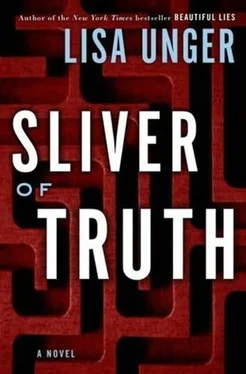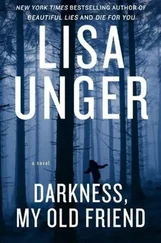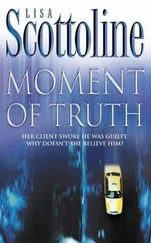ELENA JANSEN WAS a tiny bird of a woman, a former dancer with the New York City Ballet. She had a grace and strength to her carriage, a steel to her posture that made her seem powerful in spite of the fact that she just barely cleared five feet. Her eyes, a deep cocoa brown, were warm and liquid, her handshake firm and sure. I expected to find a shattered woman, to see some evidence of her tragedy in her physical bearing. But what I saw was defiance, a dare to the Universe to try to take her down again. I’d seen this before. In fact, I’d say it was the defining feature I’d found in the survivors I’d interviewed lately. A refusal to cower, to surrender, even when the world has revealed all its ugliness and horror. I imagined that sometimes I’d seen it in my own reflection, though that might have just been wishful thinking.
I followed her into a warm parlor overlooking Central Park. The room was decorated in deep reds with cream and gold accents. The walls were a gallery of photos of her years as a dancer and of her children. She was beautiful now in her early fifties, but as a younger woman, she had been truly stunning. I’d seen many of these photos in my preliminary research for this article I was writing for O Magazine.
“Well, then,” she said, sitting elegantly in an overstuffed brocade chair by the window. She motioned toward the matching sofa across from her. I took off my coat and extracted my notebook and pen from my bag and sat. “Shall we begin?”
She seemed not to want to waste any time, launched right into her story. “People say ‘stormy,’ and there’s a kind of romance to it, you know?” she said, looking straight into my eyes. “But I don’t think many people understood how dark, how dangerous those storms could be. At first even I thought his temper, his jealousy were signs of how much he loved me. But I was a stupid girl. What did I know?”
She told me how she met her husband. He was a wealthy surgeon who fell in love with her as she danced across the stage at the Met, was bold enough to send her a dozen white roses every day until she consented to dinner. Their engagement was brief, their wedding one of the social events of the year. She constantly heard how lucky she was to have found a man so in love, so devoted. She believed it, too, so it took her longer to notice the signs-or maybe she just ignored them-that there was something wrong with him, something frightening about him.
Slowly, the things she’d found so charming became oppressive. Things that were once romantic-the way he planned all their evenings, showed up unexpectedly in cities where she was performing-started to feel controlling. After a year, she began to wonder if they’d married too quickly. She felt trapped, oppressed, and her performance suffered.
“Maybe trapped wasn’t the right word,” she said, looking at me. “Because I could have left, really. I guess I liked the illusion as much as everyone else. And there were plenty of good times. I don’t know…” She let her voice trail like a woman who’d spent a lot of time contemplating the past and still came up short on answers.
Then the children came, first Emiline, then Michael. By the time Alex, their third, was born, she had stopped dancing. Gene seemed more relaxed now that Elena was settled into her roles of wife and mother, with most of her independence and her life without him a memory. Not that the marriage was ever what she hoped it would be. Gene was an emotional and physical abuser, an angry controller demanding perfection from Elena at all times.
“But it just became normal,” she said with a shrug. “He never touched the children. And I developed techniques for avoiding his rage-he was predictable in the things that set him off. I just managed.”
“You never thought of leaving him?” I asked. It was hard for me to understand how a woman of such obvious strength would endure a marriage like that, but I knew enough to understand the psychology of an abused woman. There’s a systematic erosion of self-esteem, a slow fading of personal power.
She laughed. “I thought about it every day. But the consequences of leaving just seemed too monolithic. In a weird way, I didn’t have the energy-he robbed me of that.”
Emiline was eight, Michael six, and Alex just three when she finally realized she was unable to manage anymore and decided to leave her husband.
“There was no event I could point to, exactly. It was more like I looked at myself in the mirror one day and I saw a woman I didn’t recognize. I looked…haggard. My hair was brittle and going gray. There were black circles beneath my eyes. The corners of my mouth had started to turn down, as if I hadn’t smiled in years. I couldn’t remember the last time I’d laughed. I saw someone shelled out…empty. It wasn’t so much that I was afraid for myself-I’d abandoned myself a long time ago. I was afraid of what kind of role model I had become for my children.”
The divorce and custody battle that followed was textbook in its viciousness. But Elena attained full custody; Gene was allowed to have the children every third weekend. Elena had lobbied for supervised visitation only, but she lost that fight.
The weekend after their divorce was final and the uneasy custody arrangement had been settled, Gene picked up the kids for some time in the country. Elena would remember that he seemed relaxed and cordial, even regretful on their last encounter. He was taking the children to a rented cabin on the grounds of a resort in the Adirondack Mountains. Emiline loved birds and Michael was learning to horseback ride. Alex just adored his father and couldn’t wait for the canoe trip Gene had promised.
She never imagined that Emiline wouldn’t see any birds or that Michael would not ride a horse, that Alex wouldn’t get his canoe trip. She couldn’t have conceived that Gene would take their children that weekend and kill each of them, suffocating them as they slept, then shoot himself in the head.
Elena’s face had changed subtly as she recounted her story for me. The color drained and her eyes had grown distant. She suddenly looked gaunt, haunted. How could she ever be anything else? How could she ever have a moment of peace or joy again? I wondered. We were interrupted then by a small voice.
“Mommy?”
A little girl toddled in, unsteady on her white sneakers. Her mother leaned down and outstretched her arms; the little girl ran happily to her.
“Sorry, Elena,” said a young woman, probably the nanny, as she came in behind the toddler.
“That’s all right,” Elena said, smiling, pulling her little girl into her lap and giving her a squeeze and a kiss before letting her go back to her nanny.
“I never would have believed that life could continue,” she said to me when the two had left the room. “In those dark, dark years that followed, I often wished that death would come for me, too. But it didn’t. And I was too cowardly to chase after it. Then life came for me instead.”
She told me how she met another man and fell in love again, how they married and had a daughter. She told me how she turned her life into a crusade to help women trapped in abusive marriages, offering counseling and, if necessary, a means of escape through an organization she founded called Follow the Signs.
After all of it I asked her, “Were there signs that you missed? Did you know on some level what your husband might be capable of doing?”
She looked at me and gave me a slow, thoughtful nod as if this were a question she’d asked herself a million times. “Because what he did was so unimaginable, I can’t really say at the time that I did. But knowing what I know now…yes, there were signs.”
She sighed. I didn’t push her to go on. Then: “I think we can cast people in our lives, almost assign them roles and then stop seeing them as they truly are. And when we sense something truly dark, something monstrous, we can pull a veil over our eyes…because to acknowledge it is to take responsibility. Once you know, you have to do something about it. And that can be the most frightening thing of all.”
Читать дальше












